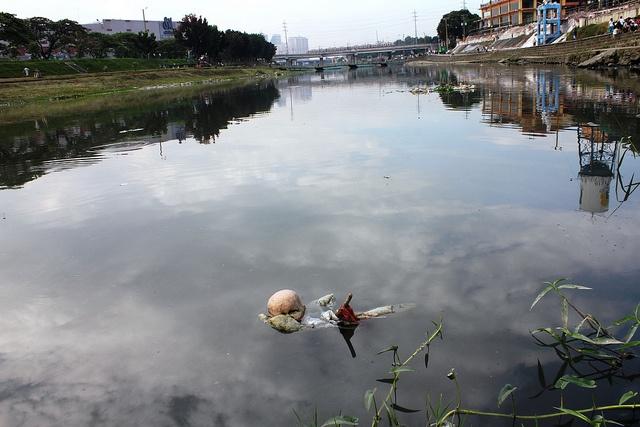
As Olympic competitors converge on the Brazilian city of Rio de Janeiro this week, they come armed with important information that is meant to enhance their chances of winning that prestigious gold medal. Strategy and endurance play heavily into an athlete's competitive performance, but so does environment -- especially this year.
This season, in addition to getting a longer-than-usual list of vaccinations (diphtheria, rubella, haemophilius influenza type B, tetanus and polio are just a few), they will likely been coached on things to do and not do while competing in the Olympic games. This includes keeping one's mouth shut -- and not swallowing -- while swimming in Rio's polluted Guanabara Bay.
“Foreign athletes will literally be swimming in human crap, and they risk getting sick from all those microorganisms,” Dr. Daniel Becker told to the New York Times a few weeks ago. "It's sad but also worrisome." Becker is a pediatrician working in Rio.
Pollution isn't anything new on Rio's beaches. Sewage and untreated garbage have put key locations like Flamingo Beach off limits for swimming for years. Such pollution also makes it more likely that athletes competing at other beaches could get sick from the foamy sludge that percolates along the coastline.
The city has promised to clean up the water for years. Local government made a cleanup plan part of Rio's bid for the 2016 Summer Games, projecting an 80 percent cleanup by this year. And while those efforts are still far from complete, other cities, like nearby Niteroi prove that cleaning up Guanabara Bay is attainable.
Located a half-hour's boat from Rio on an adjacent coastline, Niteroi credits its use of a private sewage contractor and a reliance on public-private collaboration for its success. The city has already met the 95 percent benchmark in cleaning up its once-polluted beaches and is optimistic in meeting the 100 percent mark this year. Rio, on the other hand, is far from its stated goal of 80 percent cleanup.
It's not like environmental pollution is new to the Olympic Games. Contrary to what sports fans may think, the world's most prestigious game venues aren't usually chosen because they enhance robust health and fitness. In fact, many prior host cities were plagued with pollution, forcing competitors and tourists to be on alert for health concerns.
The 1968 Summer Olympics were held at more than 7,000 feet altitude in Mexico City, a city well known for its air pollution. In many cases, cities promised to devote a portion of revenue from the games to help address environmental concerns. Such promises were made in Albertville, France in 1992 and Beijing, China in 2008. Instead, both cities faced heavy criticism for their inability to control environmental degradation prior to the games, and as a result of the games' impact.
That's not to say all host cities struggled with environmental degradation and pollution while preparing for the games. Sydney, Australia, used its Olympic bid to boost pubic transportation with infrastructure that stayed in place after the games. Vancouver, British Columbia, Canada, did the same in preparation for its hosting of the 1986 World Fair.
With Zika still prevalent in Brazil, some athletes and physicians are questioning the value of holding a global competition in Rio this year. To date, more than a dozen athletes have turned in their tickets to the games, either due to concerns over Zika or other personal reasons.
And so far, more than 130 physicians across the globe signed a letter to Dr. Margaret Chan, director general of the World Health Organization (WHO). They called on Chan to either move or postpone this year's Summer Olympic Games in light of the possible risk to the public from exposure to the Zika virus. The WHO and the U.S. Centers for Disease Control and Prevention (CDC) maintain that Brazil's cooler weather at this time of year considerably reduces the risk of contracting the virus.
Some physicians are not convinced, however, and the roster of signatories is still growing. "We make this call despite the widespread fatalism that the Rio 2016 Games are inevitable or 'too big to fail.' History teaches this is wrong," say the signers. They point out that other Olympic games have been delayed, moved or cancelled due to risk to competitors or the public, including a Women's World Cup, which was rescheduled by the international football federation, FIFA.
"Given the public and ethical consequences, not doing so is irresponsible," the group concludes.
Image credit: Flickr/Rodrigo Soldon
Jan Lee is a former news editor and award-winning editorial writer whose non-fiction and fiction have been published in the U.S., Canada, Mexico, the U.K. and Australia. Her articles and posts can be found on TriplePundit, JustMeans, and her blog, The Multicultural Jew, as well as other publications. She currently splits her residence between the city of Vancouver, British Columbia and the rural farmlands of Idaho.














